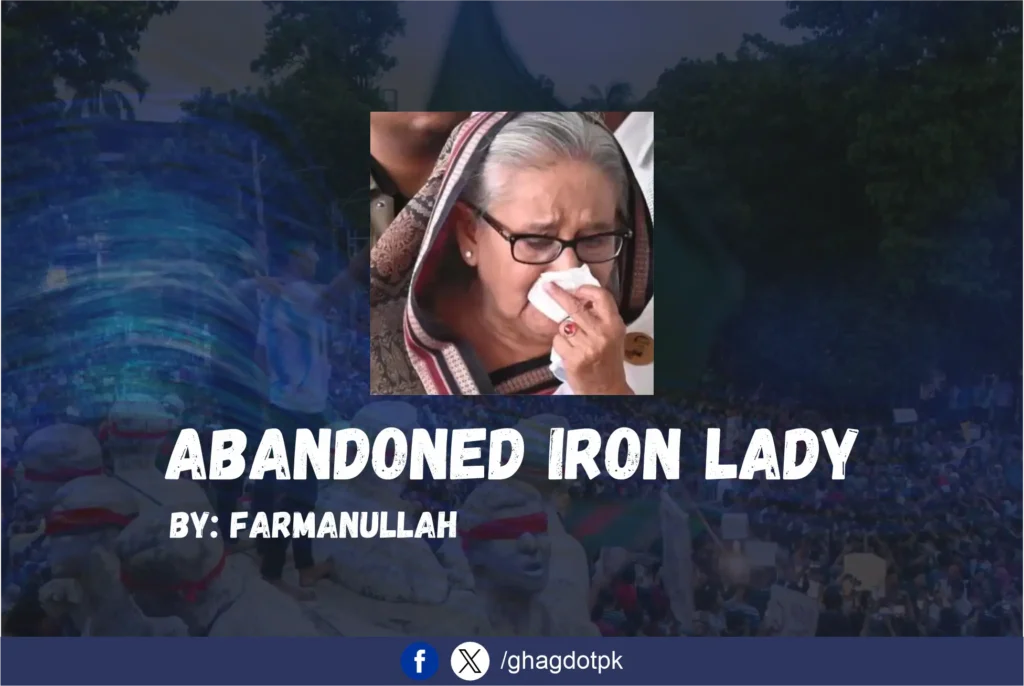Farman Ullah
In Bangladesh, jobs were given based on quotas. 30% of the jobs were reserved for those who participated in the Bangladesh Liberation Movement. Additionally, 56% of the quota was shared among minorities, tribes, and backward communities. After a large public protest in 2018, this quota system was abolished. However, the Bangladesh High Court reinstated the quota in June this year, leading to student protests in universities in July. When the Bangladeshi police and the student wing of the Awami League tried to forcefully stop the movement, the situation got out of control. After weeks of student protests and violence that resulted in approximately 300 deaths, thousands of injuries, and over 10,000 arrests. The Army Chief of Bangladesh visited Prime Minister Sheikh Hasina at her residence and gave her a 45-minute ultimatum to resign from her position. This was after the situation in the country had spiraled out of control, with widespread protests and violence, and the government’s authority had begun to erode. Faced with the possibility of further bloodshed and instability, Sheikh Hasina ultimately decided to step down as Prime Minister, bringing an end to her nearly 15-year rule, and fled to India, but her troubles are only increasing. On one hand, the UK has refused to grant her political asylum, and on the other hand, the US government has canceled her visa. The newly elected UK Prime Minister has apologized for not accepting Sheikh Hasina’s request for political asylum in the UK due to the country’s new policy. Under this policy, applicants for political asylum must first stay in another country before entering the UK, where their intentions and conduct are assessed before granting asylum.
Sheikh Hasina Wajid wanted to go to London from India and obtain political asylum there, or possibly move to Finland from London.
Countries are hesitant to grant asylum to Sheikh Hasina Wajid due to her controversial reputation, marked by allegations of authoritarianism, human rights abuses, and corruption during her nearly 15-year rule. This baggage may make countries wary of associating with her, fearing it could tarnish their reputation. Additionally, countries may not want to damage their relations with Bangladesh by providing asylum to a former leader who has been forced out of power, potentially straining diplomatic ties. Legal issues also play a role, as Hasina may face investigations or challenges related to her time in office, making countries reluctant to get entangled in these complexities. Furthermore, granting asylum could be seen as endorsing her past actions, which may be unpopular with certain political groups or citizens, leading to domestic backlash. Finally, international pressure may also be a factor, with the global community urging countries not to provide a haven for Hasina given the controversies surrounding her rule.






